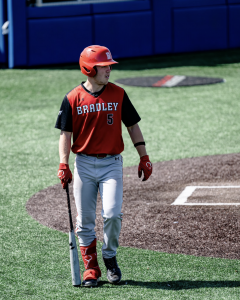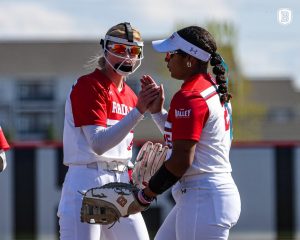Earlier this year, four Taiwanese scouts disguised as umpires snuck into a South Korean practice game. They were able to stick around for a few innings before being ousted and thrown out. So what exactly were the scouts sneaking around for?
Beginning Saturday, the World Baseball Classic (WBC) is set to begin. To most of the countries outside of the United States, these games have national importance. The Taiwanese scouts were looking for an edge when they play South Korea since they’re in the same pool as the team that’s never finished below a bronze medal. In the U.S., the same edge is nowhere to be found.
This is the third WBC, with Japan winning the gold both times in 2006 and 2009. The U.S. hasn’t placed above fourth place, as many of its best players don’t even participate in the games.
After baseball was removed from the Olympics, this became the sport’s biggest global event. In Japan, more people watched the WBC Final in 2009 than any other sporting event including the 2008 Beijing Summer Olympics.
In other countries, the WBC is helping to develop the sport at a more rapid pace. Brazil, which qualified for its first WBC appearance in November, is finally gaining a larger fan base.
“I know we’re a very popular soccer country,” said Yan Gomes, an infielder for the Cleveland Indians and the first Brazilian-born in MLB history, “but with the talent that we have in that sport, why not bring it out to baseball?”
Yet, the event has yet to catch on in America. The sport’s best athletes routinely turn down the opportunity to represent their country. The interest level from American fans is below nearly every other country that participates. Of course, we still have the MLB season to look forward to, but people still tune into the Olympics to watch basketball and hockey despite the NBA and NHL.
Unless you’re a particularly big baseball fan, you might not even recognize half the pitchers on the U.S. roster. Could anyone even point out Glen Perkins, Vinnie Pestano, Tim Collins or Steve Cishek in a police lineup, much less a MLB roster?
Of the five American players that won major awards such as MVP, Cy Young or Rookie of the Year last season (Buster Posey, David Price, Mike Trout, Bryce Harper and R.A. Dickey), only Dickey is on the roster.
The Cincinnati Reds had to exercise their right to block pitcher Johnny Cueto from playing on the Dominican roster. Cueto’s season ended after he strained his right oblique in the postseason last year, and the Reds didn’t want to risk him getting hurt before his season could begin this year.
But doesn’t it say something that players from different countries are willing to put injuries on the line to play in the WBC? Except in the U.S. it seems that players are more scared about getting injured and losing dollars in free agency than representing their country.
And the problem doesn’t stop at the players. American fans don’t regularly tune in to the results of the WBC, nor really care about the outcome. It’s scary to see the team’s top players risk injury by playing in games a month sooner than usual, but what does it say when every other country cares and Americans couldn’t care less?
Would you rather have your favorite team be healthy and ready to compete for a World Series, or the U.S. taking a victory lap around the field after winning the WBC with flags being waved around the stadium? Or is it too much to ask for both?
Bobby Nightengale is a senior sports communication major from Bloomington, Minn. He is the Scout assistant sports editor.
Direct comments, questions and other responses to rnightengale@mail.bradley.edu.




